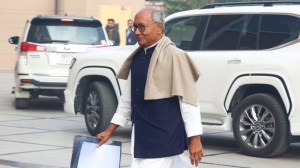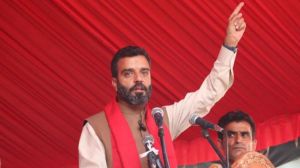Seeing the light
It is remarkable that the Air-India Employees' Guild is coming to terms with privatisation. The most stubbornly opposed of Air-India's sev...

It is remarkable that the Air-India Employees8217; Guild is coming to terms with privatisation. The most stubbornly opposed of Air-India8217;s several unions, and its biggest, is the first major public sector trade union to realise there are no other options. This is being hailed in the corporate world as a pragmatic shift which should help speed up the government8217;s disinvestment programme in Air-India and, because it sets a good example, in other PSUs as well. The factors which persuade unions to support privatisation will differ from enterprise to enterprise but one crucial factor is that employees have to go through the learning process. It ought not, of course, be as long, slow and expensive for the tax payer as the one in India8217;s national carrier. In the event, however, it seems to have brought about change.
An air of depression is apparent to anyone who walks into an Air-India office. Morale has progressively declined as its operations were cut back, as it lost ground to rivals in the prestigious Atlantic sector and its fleet was reduced. None of the old remedies worked any longer. The writing on the wall said, change or perish. Driving the message home further were governments at the Centre which admitted, one after the other, that a large infusion of private capital was essential to turn around the airline. On every side experts said privatisation was the only alternative. Also indispensable for change in union attitudes are forward-looking, bold union bosses. In George Abraham, the AIEG has a president whose head is not buried in the sand. He believes privatisation is inevitable. What is more, he is prepared to say out loud that there is no future for Air-India without private capital and professional management. He is, of course, right on both counts. The future of all AI employees will be bleak if theairline is not restored to health. Luckily its prospects have improved already with the AIEG joining its pilots and other employees in supporting the moves towards disinvestment and privatisation.
When AIEG8217;s president speaks of such things as guaranteed wage increases, however, he begins to sound like the Union minister who, famously, is all for privatisation as long as the government remains in control. No doubt tactical issues are involved here and union leaders need to guard against a revolt in the ranks and so on. But it is also essential to make clear to union members that the rules will change under privatisation. Raising false expectations is unwise. Realistic assessments are required of the terms which will be of mutual benefit to union members and the organisation. Union bosses have a responsibility to change the public sector mindset and prepare their members for the real world. In the past AI8217;s unions collaborated in creating a rarefied world of high payscales and generous health and other benefits, a world where managements were often captive to unions. Privatisation will push the pendulum in the opposite direction and the environment will become more demanding for employees. To becomeprofitable Air-India must raise productivity and reduce the present ratio of personnel to aircraft. Alongside retraining and redeployment for some, there will be redundancies and VRS for others. Unions should prepare for all these changes.
- 01
- 02
- 03
- 04
- 05































